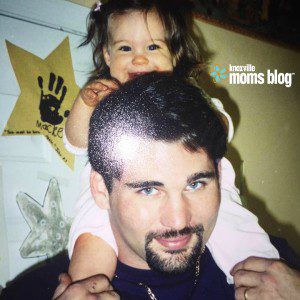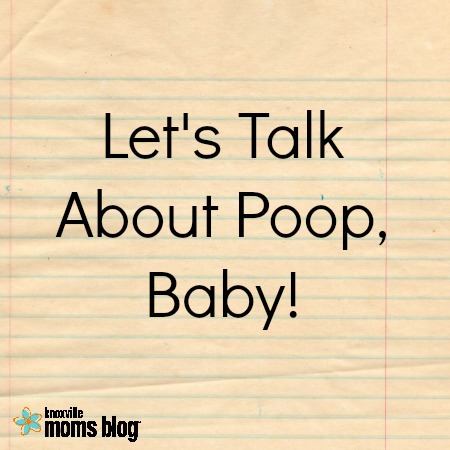I will never forget that Thanksgiving in 2002. My husband, who was never sick, was having some pain in his side. As we made our rounds to see family, we asked all of them what they thought it could be. Most thought appendix or gallbladder. When he saw his doctor the next week, he said his liver seemed swollen; he gave him a stool sample kit and said if the pain wasn’t better in two weeks to give him a call. The stool sample kit was thrown in the trash as he left the office — there was no way he was doing that!
The next day he was rushed to the hospital in horrible pain. They saw some spots on his liver with an ultrasound and decided to do a CT scan. After reading the results, the ER doctor, breathless and flushed, busted into the curtain saying, “I think you have cancer!” We were so stunned. He asked us if we wanted to see the images and we followed him to a crowd of medical staff, jaws dropped, staring at the images of my husband’s liver. When they saw us approach, they slowly scattered, some patting his shoulder as they walked away. The heaviness in their eyes and in the room hit us both immediately. The doctor pointed to the tumors in his liver- several and HUGE — and Michael collapsed into our arms in sobs.
Colon cancer at 27 isn’t supposed to happen. He fought it so hard, having chemo and surgeries. The chemo made him so sick but he stayed the course, never giving up hope. He fought valiantly for 19 months before he passed from that horrible disease. Our daughter was 3 years old.
 I believe one reason his cancer had spread so much before we found it is because we don’t talk about the symptoms. He had some constipation and it got very severe about 3 months before his diagnosis. It was a big change in bowel habits, but he explained it away with things like “I need to eat better.” And he didn’t really tell me any of this until after the diagnosis, because we don’t usually talk about it. To help prevent deaths from colon cancer, we need to talk about poop and bowel habits. Sure, as parents of babies and toddlers we talk about poop a lot, but when it comes to adults, it’s a taboo, embarrassing topic.
I believe one reason his cancer had spread so much before we found it is because we don’t talk about the symptoms. He had some constipation and it got very severe about 3 months before his diagnosis. It was a big change in bowel habits, but he explained it away with things like “I need to eat better.” And he didn’t really tell me any of this until after the diagnosis, because we don’t usually talk about it. To help prevent deaths from colon cancer, we need to talk about poop and bowel habits. Sure, as parents of babies and toddlers we talk about poop a lot, but when it comes to adults, it’s a taboo, embarrassing topic.
I recently had a scare myself, and I am going to share this so that you won’t ignore when your body is telling you to GO SEE A DOCTOR AND TELL HIM/HER ABOUT IT! (If I have ever dated you, stop reading now. Your welcome.) I first started seeing blood on the toilet paper. A few days later I saw it in the toilet. Then, I couldn’t see the toilet because it was full of blood. What did I do? Ignored it. Tried to put it out of my mind for about 3 months until I couldn’t take 10 steps without losing my breath. I was also white as a ghost. Why did I ignore it? Because if I ignored it maybe it would just go away. Guess what happened? It just got worse. I let my hemoglobin get to 4 before I finally saw my doctor. At that point, I had to have blood transfusions. I have had a colonoscopy, endoscopy, and a pill camera test since. I do not have colon cancer, thank God.
The CDC says that colon cancer is second deadliest among killing cancers and that over 51,000 people died from colon cancer in 2012. Awareness can change this. Colon cancer is also one of the most curable cancers, if found early. How do you find it? Screening. Not everyone needs to rush out and get a colonoscopy. (Side note — they’re really not bad, it is just the prep that isn’t fun. But it is one day of your life and you will be so glad when you don’t die of colon cancer because you did it!) If you are over 50, you need a colonoscopy and your doctor will suggest it. What about most of the people reading this blog that are nowhere near 50? You need to know the risks and warning signs.
Colon cancer risks include Crohn’s Disease, Ulcerative Colitis, and family history. Lifestyle can also increase your risk. Things like low physical activity, low fruit and vegetable consumption, low fiber consumption, smoking, drinking alcohol, over weight and obesity can all increase your risk.
Colon cancer doesn’t really have a lot of symptoms; you can have a polyp or colon cancer and have no symptoms at all. That is why it is so important to get screening done and not put it off. But you can have some symptoms that you should definitely talk to your doctor about like a change in bowel habits, blood in your stool or in the toilet after a bowel movement (ahem, why would ANYONE ignore that?), stomach pains that do not go away, or unexpected weight loss. Many things can cause any of these symptoms, not just colon cancer, but none of them are normal and you need to TALK ABOUT IT with your doctor. We all do.
I also found it similar to an act of congress to figure out childcare while I went for all of these tests. As a stay-at-home mom, I really needed two people to do my “job” so that I could be away. That is daunting, and I think we women are quick to take care of our families while we let our own needs go. But if we aren’t healthy, how can we take care of our families?
We have decided to make something good come out of our loss, and help spread awareness about colon cancer. As a family every year, we join Thompson Cancer Survival Center for the Race Against Cancer. Our team is the Bassmasters, because Michael loved to fish. It is always on a Sunday in November; a wonderful day that we get to love on Michael’s family and friends and remember him. Sometimes it is a hard day, but most of the time we just enjoy the fall air and the park and remember a brave man gone too soon.






















Great article! It seems easier to ignore problems when we have them but we all shouldn’t ignore the warning signs when anything is wrong. No matter how minor we thing (or hope) it is. Regular check ups are so important and are a small price to pay for something that may save your life. Thank you for being brave to share your own story.
Thank you! Hopefully everyone learned something from my story- and if it helps anyone then it is more than worth it!